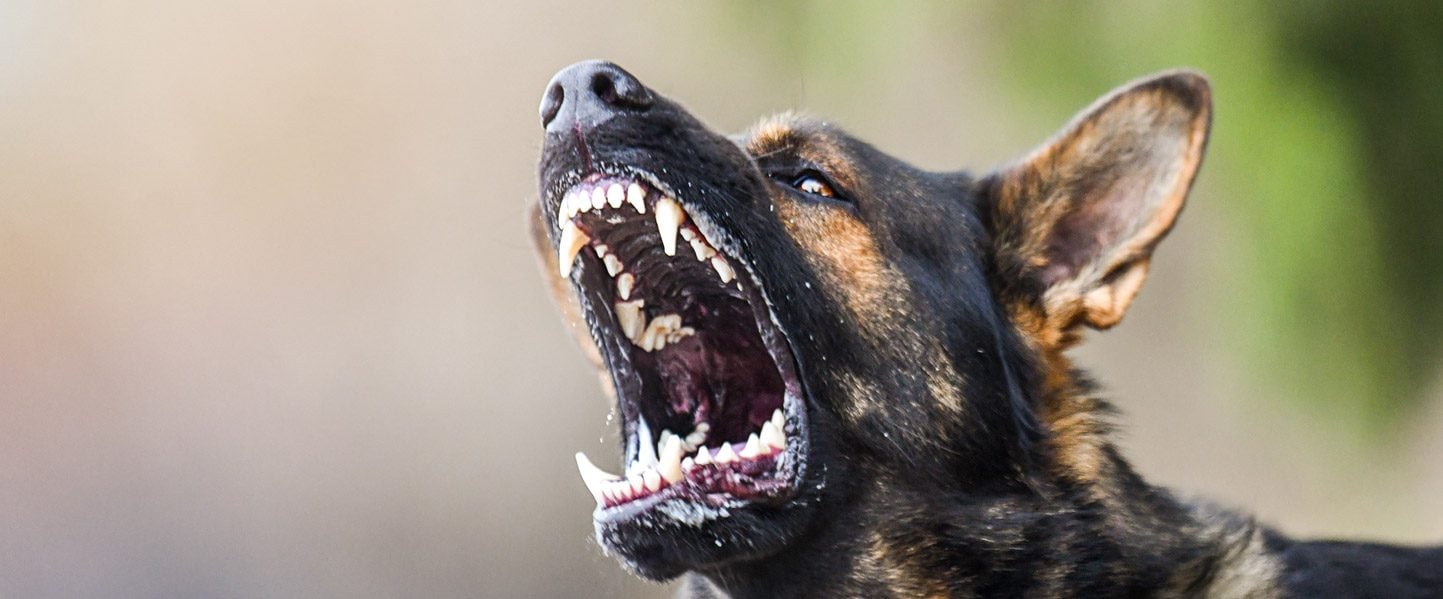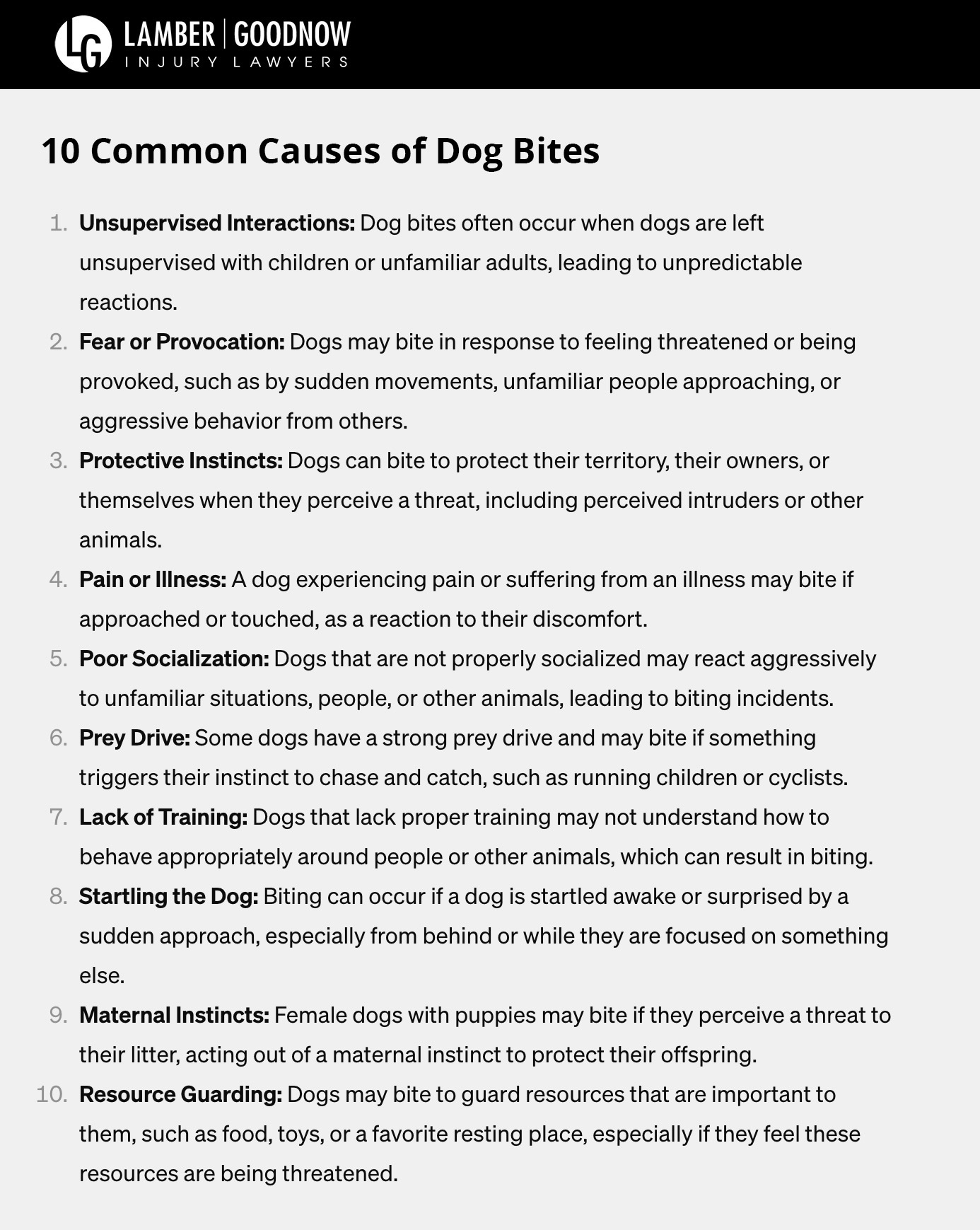Experience. Straight Talk. Justice.
Phoenix Dog Bite Lawyer
Success Rate
99% won or settled.*
5-Star Reviews
470+ 5 Star Google Reviews
No Fee Promise
No fee unless you get paid.


Phoenix Office
Dog Bite Lawyer in Phoenix
You or your loved one may be embarrassed, but serious dog bites are no laughing matter. Let our dog bite lawyer Phoenix team help you determine liability and damages in your case.

Straight Talk From Marc Lamber
“Advocating for dog bite victims in Phoenix is not just our duty, it’s our commitment. Each case underscores our resolve for justice, holding negligent owners to account. As Arizona’s experienced personal injury firm, we navigate legal battles unflinchingly. We understand the trauma of dog attacks and merge that empathy with the strength of justice, forming an unwavering force for victim rights.”
Arizona’s Strict Liability Dog Bite Law
Some states have dog bite laws that follow what is known as the one-bite rule. In those states, dog owners won’t be liable for injuries caused to others in dog bite attacks unless the dogs have previously bitten people. This means that people who are bitten by a dog when the dog hasn’t bitten someone before might have difficulty recovering compensation for their losses.
In Arizona, however, the state has a strict liability law for dog bites found at ARS 11-1025. This law provides that a dog’s owner is strictly liable when someone is bitten by the owner’s dog in a public place or while the victim is lawfully on private property.
Strict liability for a dog owner means that the owner will be liable even if the dog has never bitten someone before. However, the strict liability statute doesn’t apply to people other than a dog’s owner who have control of the dog or to injuries caused by other types of dog attacks that don’t involve biting.
The statute also includes the following exceptions for military and police dogs that bite:
- Biting after provocation or while defending themselves
- Biting someone to aid in the apprehension of a suspect
- Biting someone while a crime is being investigated
- BIting someone while the police are serving a warrant
- Biting someone to defend a police officer or another person
The strict liability dog bite statute only applies strict liability to the dog’s owner and not to others who possess the dog under Johnson v. Svidergol, 157 Ariz. 333 (Ct. App. 1988). However, there might be other available causes of action against non-dog owners.
To prove the dog owner’s strict liability under the dog bite statute, you will need to prove the following elements:
- You were bitten by the owner’s dog.
- You were in a public place or were lawfully present on private property at the time of the attack.
Required Elements of an Arizona Dog Bite Lawsuit
Under Arizona’s strict liability framework for dog bite incidents, a successful lawsuit necessitates proving these specific elements:
Strict Liability of the Dog Owner
In Arizona, dog owners are held strictly liable under ARS 11-1025 when their dogs bite someone. This means that the owner’s liability does not depend on the dog’s prior behavior or the owner’s knowledge of such behavior. Even if the dog has never shown aggression or bitten anyone before, the owner can still be held liable for the dog bite.
Location of the Incident
The plaintiff must demonstrate that they were bitten in a public place or while lawfully on private property. This ensures that the victim had a right to be in the location where the bite occurred, whether it was a public park or legally visiting someone’s home.
Bite as the Cause of Injury
The law specifically covers injuries caused by dog bites. Therefore, the plaintiff needs to show that their injuries directly resulted from being bitten by the dog. Arizona’s strict liability statute is focused on bites, rather than other forms of injury that might be caused by dogs, such as scratches or being knocked down.
Exceptions and Defenses
While the dog owner is generally held strictly liable, there are exceptions, such as when the dog is provoked, defending itself or its owner, or performing duties alongside police or military personnel. Awareness of these exceptions is crucial for both plaintiffs and defendants in a dog bite case.
To establish a dog owner’s strict liability, the victim must clearly prove these elements, aligning with Arizona’s specific legal statutes on dog bites. This direct approach simplifies the process for victims to seek justice and compensation for their injuries, bypassing the need to prove negligence or previous aggressive behavior by the dog.

Understanding Lawful Presence on Private Property
Dog owners can be strictly liable to pay damages to dog bite victims when they are bitten while they are lawfully present on the private property of the owners. According to ARS 11-1026, someone is lawfully present when they are there by the owner’s invitation or for recognized business purposes. However, a dog owner won’t be liable if their dog bites someone who is trespassing, attempting to break into a home, or for another illegal reason.
The following are some examples of visitors who might be lawfully present:
- Social guests
- Postal carriers
- Package deliverers
- Public officials
- Meter readers
- Utility workers
When dog owners invite guests to visit, they should keep their dogs locked away from guests to prevent potential dog bites. While dog owners are not strictly liable for dog bites to people who are unlawfully present, it’s still a good idea for owners to post dog warning signs just in case.
Provocation and Dog Bites
Provocation is an affirmative defense against an owner’s strict liability for a dog bite. The defense of provocation is found in ARS 11-1027. Under this statute, a dog owner won’t have to pay damages when a reasonable person could find that the actions of the victim were sufficiently provoking to result in a dog bite.
What might be considered to be sufficiently provoking is broad and can include numerous actions, such as pulling a dog’s tail, hitting a dog, approaching a female dog’s puppies, and others. In Toney v. Bouthillier, 129 Ariz. 402 (Ct. App. 1981), the Arizona Court of Appeal held that even the actions of a toddler can be sufficiently provoking to defend against liability in a dog bite case.
Other Causes of Action for Dog Attacks
Other causes of action might be available when someone is injured by a dog even when they weren’t bitten. For example, if a dog is loose in a public park and jumps on an elderly person, causing them to fall and suffer a traumatic brain injury, the victim might pursue a claim under the state’s dog-at-large statute or through a negligence action.
Liability Under the Dog-at-Large Statute
Arizona’s dog-at-large statute is found at ARS 11-1020 and provides that the owner or person responsible for a dog is liable for any property damage or injuries to another person when the dog attacks while at large. This statute provides a way for people to recover damages when they suffer injuries other than those caused by dog bites such as from being knocked over or scratched. This law also provides liability for others who are responsible for a dog at the time it is left at large and causes injuries, such as pet sitters or dog walkers.
To recover damages under this statute, the victim will need to prove that the dog was at large. This might be fairly straightforward when a dog is allowed to roam loose and is not in an approved off-leash area.
Negligence Lawsuits for Dog Bites
In addition to the dog-at-large statute, people can also file negligence causes of action against the dog’s owner or another responsible person. A plaintiff who pursues a negligence cause of action against the owner or other responsible party will have the burden of proving each of the following legal elements by a preponderance of the evidence:
- 1. The defendant owed a duty of care to the victim.
- 2. The defendant breached the duty of care.
- 3. The defendant’s breach of the duty of care caused the dog bite or attack and the victim’s injuries.
- 4. The plaintiff suffered calculable damages.
People who pursue strict liability causes of action only need to prove the statute was violated and do not need to prove the owner’s or responsible party’s negligence. Proving a negligence cause of action requires the plaintiff to present evidence proving each of the above-listed elements. If you present enough evidence to meet your burden of proof for three elements but not enough to prove the fourth, you won’t win your negligence claim. A Phoenix dog bite attorney at the Lamber Goodnow Injury Lawyers can help to identify, gather, and present evidence proving each of the negligence elements to help to prove your negligence lawsuit for the injuries you suffered in a dog attack.
In Murdock v. Balle, 144 Ariz. 136 (Ct. App. 1985), the Arizona Court of Appeal held that the strict liability statute does not prevent a plaintiff from pursuing a negligence cause of action against a dog’s owner. This means that you can file a lawsuit against a dog owner under both negligence and strict liability causes of action.
Negligence Per Se Under Phoenix City Ordinance
You can also pursue a negligence per se cause of action against a dog owner or the dog’s custodian under Phoenix City Code 8-14. This ordinance requires owners and custodians to do the following things:
- Keep a dog in a fully enclosed yard
- Never allow a dog to be at large whether on private or public property
- Keep a dog on a leash that is no longer than six feet when in public
- Place a collar or harness on a dog in public with an attached license tag
If you were bitten by a dog who was running loose or was on a leash that was longer than six feet, you could pursue a negligence cause of action against the dog’s owner or its custodian. By showing that the owner or custodian of the dog violated this city ordinance, you won’t have to prove negligence. Instead, the owner’s or custodian’s actions will be considered negligent per se because of the ordinance violation.
This ordinance does allow dogs to be off-leash in designated parks. The following are designated off-leash park locations for dogs:
- Echo Park Off Leash Arena
- Hance Park Dog Park
- Paradise Valley Park Dog Park
- Washington park PetSmart Dog Park
- RJ Dog Park at Pecos
- Rose Mofford Sports Complex
- Steele Indian School Park Dog Park
Even if you were injured while in one of these locations by a dog, you might still be able to pursue a negligence lawsuit against the dog’s owner or custodian if they negligently failed to keep the dog under control to prevent your injuries.

Relevant Statutes of Limitation
There are a couple of statutes of limitation you need to know for dog bite claims. If you intend to file a lawsuit under the state’s strict liability statute, you will have to abide by the statute of limitation defined in ARS 12-541(5). This law provides a 12-month statute of limitation for any action involving a statutorily created liability, including the strict liability dog bite statute.
If you miss the 12-month strict liability statute of limitation, you might still be able to pursue a negligence cause of action. For injuries caused by the negligence of someone else, the relevant statute of limitation is found in ARS 12-542. Under this law, you have two years to file a lawsuit against the negligent party who caused your injuries.
A victim who is younger than 18 has a longer time to file a negligence lawsuit. Under ARS 12-502, the statute of limitations is tolled until the child reaches age 18. They will then have until age 20 to file a lawsuit. In many cases, however, a child’s parents will file a dog bite lawsuit on behalf of the child instead of waiting until the child reaches age 18.
If you don’t meet the deadlines that apply to your case, your action will be time-barred. The defendant will likely file a motion to dismiss your lawsuit, and the court will grant the motion. This would mean that you would not be able to seek legal redress for your losses in court.
While the statutes of limitation provide deadlines for filing lawsuits, it’s best not to wait until the end of the limitation period. YOu should instead reach out to a Phoenix dog bite lawyer at the Lamber Goodnow Injury Lawyers as soon as possible after your dog attack incident. Getting legal representation quickly can help to prevent crucial evidence from being lost and can also help to preserve your rights to file both strict liability and negligence causes of action.
Damages in a Dog Bite Lawsuit
The types of damages that you might recover in a dog bite lawsuit in Phoenix include the following:
- Economic damages – Past and future medical expenses, past and future wage losses, and property losses
- Non-economic damages – Past and future physical pain and suffering, emotional distress, disability, reduced quality of life, scarring, disfigurement, and others
If the dog owner’s actions were particularly egregious, punitive damages might also be awarded by a jury or judge. These are monetary awards that are meant to punish defendants and deter others from acting similarly in the future. If they are awarded, they are paid in addition to the economic and non-economic damages awarded to a plaintiff.
Talk to a Phoenix Dog Bite Attorney
If you were bitten or otherwise attacked by a dog in Phoenix, you might be entitled to compensation by filing a lawsuit. The experienced dog bite lawyers at the Lamber Goodnow Injury Lawyers can evaluate your case and explain your rights.
FAQs: Dog Bites in Arizona
Truck accidents can be especially dangerous and may result in catastrophic injuries and fatalities.
Here are some of the questions that we are frequently asked to provide you with more information about dog bites.
Q: How many people are bitten by dogs each year?
A: According to data reported by the American Veterinary Medical Association, more than 4.5 million people are bitten by dogs in the U.S. each year. From 2005 to 2016, 392 people were killed in dog attacks. Out of the 4.5 million bites that happen, 800,000 require people to seek medical attention. Since the U.S. population is estimated to include 329.45 million people in 2019, this means that one out of every 72 people in the U.S. is bitten by a dog.
Because of the risks posed to people who are bitten by dogs, the states have enacted laws about dog bites and liability. People are also able to take steps to prevent dog attacks so that they can reduce their risks and the risks to others.
Q: What are the most dangerous dog breeds?
A: Certain breeds such as pit bulls, German shepherds, and Rottweilers have developed reputations for being dangerous. Dog breed advocates argue that these breeds are not dangerous when they are handled correctly by their owners. According to Dogbite.org, however, pit bulls were responsible for 74% of the dog bite fatalities that occurred in 2017. The fact is, however, that any dog can bite, including small breeds that you might think are harmless. Some of the breeds that tend to bite people more often than others include the following:
- Chihuahuas
- Pit bulls
- German shepherds
- Jack Russell terriers
- Rottweilers
- Pekingese
- Labrador retrievers
- Mastiffs
When you encounter a dog, you should exercise caution regardless of its breed. Dogs tend to bite when they feel threatened or when they are trying to protect their territory. If you see a strange dog, you should not approach it or try to pet it.
Q: Should you report a dog bite incident?
A: If you are bitten by a dog or if a dog bites your child, you should report it to the animal control department in your area. If the dog is running at large, you should call 911 to report it since it might pose a risk to others. All dog bites should be reported to the animal control department in your county. Health care providers are required to report to animal control officers when they treat dog bites in an effort to prevent rabies from spreading. In Maricopa County, dog bites can contact the Maricopa County Animal Care and Control department by calling 602-506-7387. After they receive your report, they will investigate what happened.
Q: What is strict liability for dog bite cases?
A: Each state has its own approach to determining the liability of dog owners. A majority of the states have either strict liability or follow the one-bite rule in their laws. States that follow the one-bite rule do not hold dog owners liable for the first time their dogs bite someone else. In these states, the dog owners will essentially receive one free pass.
In states that have strict liability dog bite statutes, including Arizona, dog owners are liable to pay damages any time their dogs cause injuries to others. Arizona’s strict liability dog bite statute can be found at A.R.S. § 11-1025. However, people are not allowed to recover damages when they are bitten by police or military dogs while the dogs are performing their duties.
In some cases, a dog’s owner may also be negligent in addition to holding strict liability. For example, if the dog’s owner allowed the dog to roam at large, he or she may be negligent per se under A.R.S. § 11-1020. In cases in which both theories of negligence and strict liability apply, people normally plead both causes of action in their civil complaints with the help of their Phoenix dog bite attorneys.
Q: What if the victim provoked the dog?
A: Under A.R.S. § 11-1025, there is an exception to the strict liability of a dog owner when the victim provokes the dog. A dog’s owner can raise a defense of provocation under A.R.S. § 11-1027. If the dog’s owner is able to present evidence that the victim provoked the dog to bite, he or she will not be liable to pay damages in a dog bite claim. The court or jury will determine whether the victim’s conduct was something that a reasonable person would determine to be likely to provoke a dog.
Q: What if the dog bite happens on private property?
A: Dog owners can still be liable when their dogs bite people who are lawfully present on their property, including invited guests and people who are there for legitimate business purposes. For example, if a child visits and is bitten by the homeowner’s dog while he or she is playing in the back yard, the homeowner can be liable. Similarly, homeowners can be liable if their dogs bite meter readers, postal workers, and delivery drivers. A dog’s owner will not be liable if his or her dog bites someone who is not lawfully on the property such as a burglar, for example. It is a good idea for people to keep their dogs penned away from people when they have visitors. Homeowners in Arizona are not required to post dangerous dog or beware of dog signs, but it is a good idea to do so that visitors to your property are aware that they should stay away from your dog.
Q: When should a dog bite claim be filed?
A: While the Arizona statute of limitations for personal injury cases is two years under A.R.S. § 12-542, a lawsuit for a dog bite should be filed no later than one year after the attack. This is because there is a one-year statute of limitations for strict liability claims for dog bites. Claims that are filed within one year of the attack can be filed under Arizona’s strict liability law for dog bites.
If you wait to file your claim until after a year has passed, you will be limited to bringing negligence claims against the dog’s owner. To prove negligence, you will need to show that the dog knew or should have known that the dog had a propensity to attack. This might require you to prove that the dog had threatened a person or had bitten someone else in the past, which can be difficult. You can also prove negligence per se if the dog’s owner violated the leash laws and allowed his or her dog to roam free.
If you wait until two or more years have passed since your dog attack, you will be barred from being able to recover your damages. Claims that are filed beyond the statute of limitations are said to be time-barred, and they will be dismissed by the court. You should talk to an experienced personal injury lawyer at Lamber Goodnow as soon as possible after you have been bitten by a dog. Getting help early can help your lawyer to preserve evidence that might help to strengthen your claim.
Q: What damages can you recover in a dog bite case?
A: The amount of money that you might be able to recover in a dog bite case will depend on the extent of your injuries, your likelihood of recovering, and whether you will be able to return to your job, among other factors. You may be able to recover damages to pay for your economic and your noneconomic losses. Your economic losses are called special damages in Arizona and include such things as your past and future medical bills, past income losses, your future anticipated income losses, and your property losses.
General damages are damages that are more difficult to value. These include a reduction in your capacity to participate in normal activities, a loss of your enjoyment of life, scarring and disfigurement, emotional trauma, pain and suffering, and others. When you meet with your attorney at Lamber Goodnow, he or she will analyze your claim and provide you with a range of values within which you might expect a reasonable settlement to fall.
Q: What are the potential sources of recovery in dog bite cases?
A: Some people hesitate to file dog bite claims when they are bitten by their friends’ dogs while visiting their homes. If you file a dog bite claim after being bitten by one of your friend’s dogs, his or her homeowner’s insurance will likely cover your claim. Most homeowner’s insurance policies provide coverage for bites by animals that the homeowners own. In addition to dogs, these policies may also cover bites by other types of pets such as cats. Some policies may have breed restrictions for certain dogs such as rottweilers or pit bulls, however.
If the dog’s owner has a breed that is excluded from his or her homeowner’s policy or does not have homeowner’s insurance, you will have to look at whether the owner has income or assets that will be able to satisfy your damages. You might also want to investigate whether there might be another responsible party or a different type of insurance such as a relative’s policy or renter’s insurance that might apply. If the dog attack happened at a business, there may be commercial liability insurance available as a recovery source. Your attorney will try to identify all of the potentially available recovery sources to try to secure you a monetary amount that will fairly compensate you.



